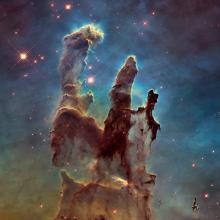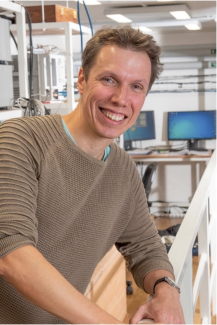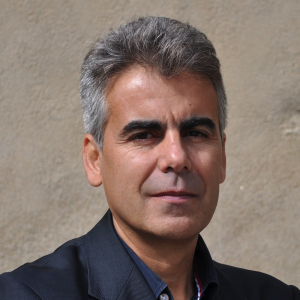Ferreras

| Office |
216 Physics Bldg
|
|---|---|
| Telephone |
(+30) 2810-39-4217
|
| Affiliation |

| Office |
216 Physics Bldg
|
|---|---|
| Telephone |
(+30) 2810-39-4217
|
| Affiliation |

| Office |
216 Physics Bldg
|
|---|---|
| Affiliation |

| Office |
244 Physics Bldg
|
|---|---|
| Affiliation |

| Office |
244 Physics Bldg
|
|---|---|
| Affiliation |

| Office |
216 Physics Building
|
|---|---|
| Affiliation |

| Education |
Takis Kontos obtained a MSc and a PhD in Solid State Physics at the University of Orsay, France, in 1998 and 2002 respectively. |
|---|---|
| Career |
The research of Takis Kontos is mainly based on the implementation of hybrid quantum circuits, aiming to reveal new states of matter or to exploit quantum mechanical properties of circuits. During his thesis at CSNSM, Orsay, France, he studied the interplay of superconductivity and ferromagnetism in multilayers of superconductors and ferromagnetic alloys together with Marco Aprili and Jérôme Lesueur. He moved as a postdoctoral researcher to the University of Basel, Switzerland, in the group of Prof. Christian Schönenberger, where he studied spin transport in carbon nanotubes. Since 2005, he has been permanent CNRS researcher at LPENS, Ecole Normale Supérieure, first as a research associate and, since 2013, as a research director. In collaboration with Audrey Cottet for the theoretical aspects, his research has focused on the implementation of a circuit quantum electrodynamics architecture with carbon nanotubes for which he was awarded an ERC CoG in 2013 (project “CirQys”). He could shed new light on fundamental aspects of condensed matter such as the Kondo effect. He could also develop a synthetic spin-photon interface for single spins trapped in carbon nanotubes. The latter work is at the basis of the technology used by the “quantum” start-up C12 Quantum electronics, which Takis Kontos co-founded in 2020. Takis Kontos is now focusing on the use of quantum sensing techniques with circuits in order to test dark matter paradigms such as axions or to measure radioastronomical signals such as the 21 cm hydrogen line. For the dark matter quantum sensing project, he has been awarded an ERC SyG in 2023 (project “Dark Quantum”). He joined IA-FORTH as a Research Fellow in 2025. |
| Interests |
Quantum circuits with superconductors and/or carbon nanotubes, condensed matter physics, quantum sensing of axion dark matter and of radioastronomical signals. |
| Affiliation |

| Education |
Dr. Jean-Luc Starck studied Physics in the University of Nice, holds a Ph.D from Nice Observatory (1992) and a Habilitation from the University Paris XI. |
|---|---|
| Career |
After a brief postdoctoral appointment at ESO, he joined CEA-Saclay in 1993 as a tenure researcher. Over the years he has been a frequent long term visitor of several institutions including ESO, UCLA, Stanford, the Flatiron Institute, and FORTH. In 2010 he founded and has been leading since, the “CosmoStat Lab” at CEA, an interdisciplinary research group, currently having 16 researchers. His group is performing cutting edge research at the interface between astrophysics, cosmology and statistics, with strong interests in applications for space missions, as well as developing close industry-academia partnerships. He has received the EADS prize of the French Academy of Science in 2011, as well as the 2018 Gruber Prize in Cosmology (as a member of the ESA Planck team) and the Tycho Brahe Medal of the European Astronomical Society in 2022. He is also member of Academia Europae (since 2021). Over the last 10 years, he has been awarded as Co-I or PI ~11MEuros in competitive research funding including an Advanced ERC. He has published over 300 refereed papers in astrophysics, cosmology, signal processing and applied mathematics, which have received more than 98,000 citations (source Google Scholar), and he is also author of three books. In 2022 he was awarded a highly competitive ERA Chair in "Astroinformatics", in collaboration with the Institute of Computer Science and the Institute of Astrophysics and the Board of Directors of FORTH named him an "Honorary FORTH Fellow". |
| Interests |
Jean-Luc Starck is a pioneer in the field of astrostatistics: Modern telescope facilities produce large amounts of data and require advanced analysis techniques to achieve their scientific goals. Thus astrophysicists have been increasingly relying on statisticians to develop sophisticated and mathematically robust methods to reduce and interpret their data.Currently he is mainly interested in various aspects of cosmology and he is heavily involved in the Euclid space mission of ESA, which was launched on July 1, 2023. |
| Department |
IRFU/DAp-AIM
|
| Affiliation |